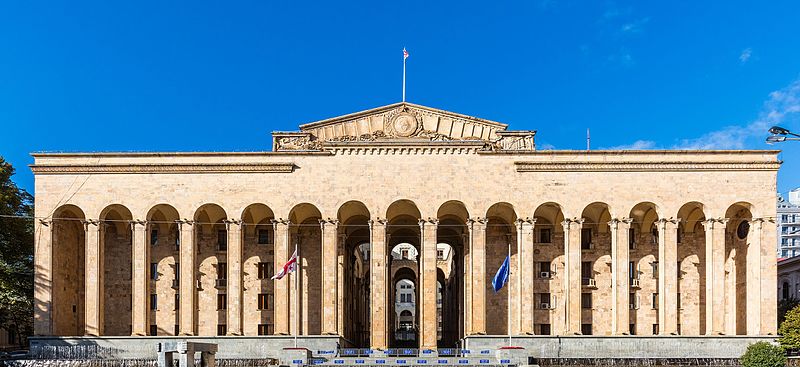Georgia’s ruling party, Georgian Dream, has reached an agreement with the opposition to change Georgia’s electoral system ahead of the October 2020 parliamentary election. Where previously the national legislature was completely controlled by Georgian Dream, the Georgian parties have now agreed that the next parliament will be elected according to a system of proportional representation. 120 seats will be chosen this way, and the remaining 30 will be directly elected from constituencies. The agreement also sets the electoral threshold at 1 percent of the proportional vote and a capping mechanism means that no single party taking less than 40 percent of the vote will be able to hold a majority of seats. This new deal could mean that Georgia is entering an era of coalition governance after months of foreign brokered talks and sporadic outbreaks of mass protests. The parliament will vote on the agreement three times before it can be introduced into the constitution. A 113 majority vote is required for the deal to be approved. Even though most politicians and analysts are positive about the upcoming vote, some analyst doubt whether or not all Georgian Dream members stand behind the agreement. If this is not the case it could happen that the amendment will still not get through parliament.
Political crisis
Under the current system 77 of the 150 Georgian MPs are elected through proportional representation, while the remaining 73 are elected through single-mandate electoral districts. In June 2019 the leader of the Georgian Dream party, Bidzina Ivanishvili, promised to switch exclusively to a proportional election system in time for the 2020 parliamentary election in a bid to appease protesters. Protest erupted over the summer after a Russian lawmaker was seen in the Georgian parliament. Tensions with Russia were running high as many see Russia as an occupying force and Georgia’s main enemy. However, when the Georgian parliament voted on the proposal on November 14th 2019, they rejected it. This sparked new protests that attracted tens of thousands of people. Protesters said that “Georgian Dream has been lying to people and deceiving them for many years. This isn’t the first time. But now they have crossed a line.”
The failed amendment vote sparked a deadlock in parliament. Opposition politicians refused to attend sessions and 12 Georgian Dream members actually left the party. One of them was first vice speaker and foreign secretary of the party, Tamar Chugoshvili, who said that she and her colleagues wanted to send a message about breaking promises to the public as well as to Georgia’s international partners.
International assistance
At the time the US and EU embassies in Georgia issued a joint statement declaring that they stood in solidarity with the anti-government protesters. The statement read that they “recognize the deep disappointment of a wide segment of Georgian society at the failure of parliament to pass the constitutional amendments.”
After the amendment vote Georgian Dream and the opposition have held multiple foreign-brokered (by the U.S. embassy and the EU delegation to Georgia) talks but they all failed. During one of the talks the opposition walked out after one of its leaders, Gigi Ugulava, was imprisoned on embezzlement charges. The opposition accused the court of acting on the orders of the Georgian Dream party. EU ambassador Carl Hartzell said that they intended to keep trying to find a solution and stabilize Georgia. The US embassy issued a similar statement that said that the embassy would continue to support the political dialogue between the government and the opposition.
A month later a deal was finally brokered after four months of trying. The EU responded by saying that it “trusts that all sides will adhere to the agreement and ensure its successful adoption in the parliament in the coming weeks and later on effective implementation.” Peter Stano, lead spokesperson for Foreign Affairs and Security Policy for the EU in the Western Balkans, said that the main priority should be now to address the OSCE/ODIHR recommendations “to ensure that the upcoming parliamentary elections attain the highest level of confidence by the Georgian people and the international community.”
Sources: Eurasianet 1 / Eurasianet 2 / Eurasianet 3 / Emerging Europe 1 / Emerging Europe 2 / JAM News / DW / Civil 1 / Civil 2 / Radio Free Europe
Photo: Wikimedia



